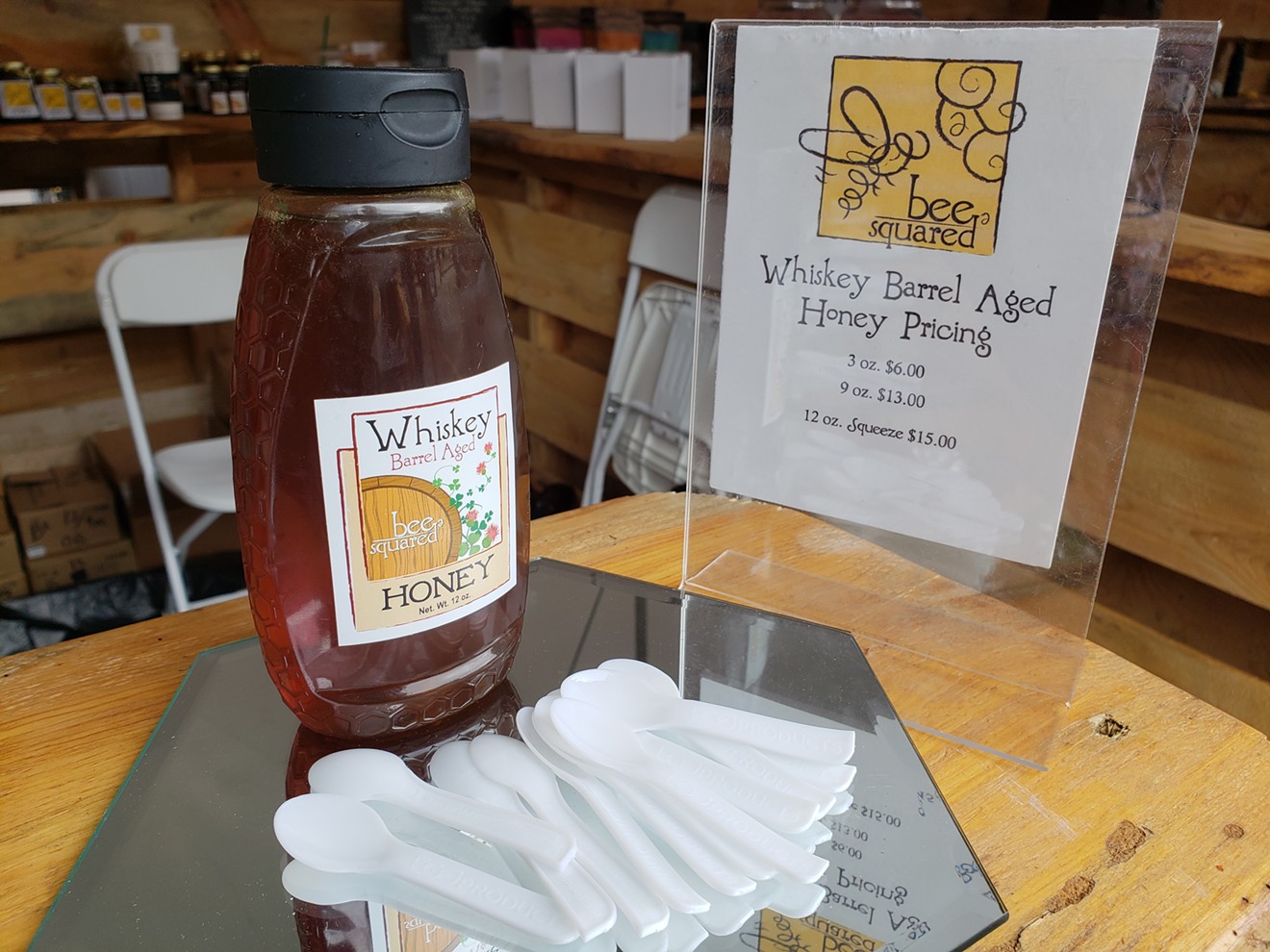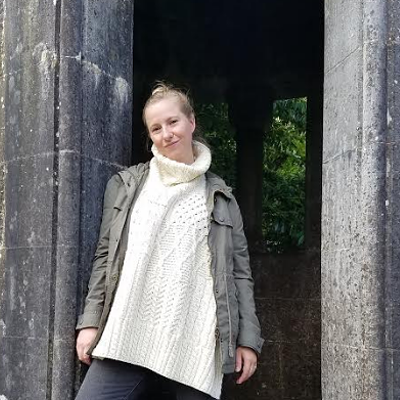In fact, after the Slow Food Nations tents are folded and the celebrity chefs return to their home cities and television studios, Slow Food USA continues its mission year-round. With that in mind, here are seven neat things we learned about food and Colorado during this three-day fete that will serve us well for the rest of 2018.
1. Oysters Are Mostly Sustainable
Colorado doesn't have vast expanses of saltwater with beds of oysters, but it does have chefs who have made a point of studying oysters and learning about the industry to bring the best shellfish to our state. The bivalves you're eating locally are sustainable, according to Sheila Bowman of the Monterey Bay Aquarium Seafood Watch, who says eat them all, save for Eastern oysters harvested in New York. The rest, she explains, are in fact one of the most sustainable foods out there, since they clean the water as they grow and are raised in a natural environment, unlike other forms of farmed seafood. At Jax Fish House & Oyster Bar in LoDo, chef Sheila Lucero (who was part of the oyster tasting at Slow Food Nations) thoughtfully sources her oysters by making sure they're good for both the guest and the waters where they're grown. Jorel Pierce of Stoic & Genuine also takes care when purchasing his oysters, making this downtown hot spot another dependable place to stop, shuck and slurp. Because they're both bringing in farmed oysters grown in clean waters, they're helping wild species re-establish in previously polluted bays and estuaries.
2. Heirloom Pumpkin Seeds Are Sprouting Up in Boulder
Patrick Smith, founder of Farmer's Porch Heirloom Pumpkin Seeds, roasts nutrient-rich pumpkin seeds at his Boulder facility. Smith sources nutty heirloom Styrian pumpkin seeds from Oregon and roasts them with a variety of flavors, including ghost pepper, turmeric with lime and cinnamon with cacao. Styrian seeds are shell-less and rich in oil, so Farmer's Porch also offers pumpkin seed oil, great as a dip for artisan bread. Smith's seeds are bigger, meatier and more flavorful than standard pumpkin seeds, so they make for a fun snack and are also a crunchy addition to salads and charcuterie boards.
3. Rare Regional American Dishes Need to Be Preserved
Slow Food Nations showcased a number of regional specialties from around the United States, including yaka mein, a traditional New Orleans Creole soup made with spaghetti noodles, beef, hard-boiled eggs and spices. It was showcased at Slow Food Nations by Linda Green, a Louisiana chef famous for her yaka mein pop-ups in her home town and for winning the Food Network’s Chopped "Pride of New Orleans" episode in 2012. Green learned to make the dish from her mother and uses green onions, hot sauce and a blend of Asian and Creole spices in her recipe. And if a trip to New Orleans isn't in your near future, yaka mein has now made its way to Denver, thanks to Kyle and Katy Foster's Julep, a Southern restaurant in RiNo. Julep's version is available Friday through Sunday from 11 a.m. to 2:30 p.m., even when it's steamy outside. The heat, says Katy, doesn't deter customers at all from ordering yaka mein for lunch or brunch.
4. Colorado Has So Much Honey
Honey stands at farmers' markets have become the norm around the Front Range, in part thanks to the efforts of Boulder's Highland Honey and The Honey People. But there's so much more. Chef Chris Starkus raises bees on the roof of the Oxford Hotel downtown, using the honey from those hives at his restaurant, Urban Farmer, right downstairs. Bee Squared produces clover, wildflower and alfalfa honey in Berthoud. Björn's Colorado Honey also produces honey in Boulder, including propolis honey, a product enhanced with propolis, otherwise known as bee glue, a sticky substance made of bee saliva, honey and whatever botanical compounds the insect is gathering. Proponents say it has stronger health benefits than plain honey, and it's also purported to help with allergies.
5. These Restaurants Practice All the Principles of Slow Food
Even if a restaurant claims to be "sustainable," those claims don't always align with the Slow Food mission. But in Denver there are plenty of chefs and restaurant owners who walk the walk, striving to make their menus and spaces working examples of businesses that have a low impact on the environment and support small family farms. For example, at Beast + Bottle in Uptown, chef/co-owner Paul Reilly maintains a close-knit relationship with local farmers and ranchers so that he can bring the best-quality meats and produce into his kitchen. Since opening five years ago, he has steadily increased the number of farms he works with and the percentage of local foods on the plate.
In Capitol Hill, Potager owner Teri Rippeto has practiced a dedication to well-sourced food since 1997, and her menu lists all the farms she uses. Justin Cucci, founder of the Edible Beats restaurant group (Linger, Root Down, Vital Root, Ophelia's Electric Soapbox and El Five) also puts his sustainable goal where his mouth is and continually creates restaurants featuring green building materials, wind and solar power, and fresh vegetables from the company's 4,000-square-foot city garden. At Basta in Boulder, chef/owner Kelly Whitaker pushes heirloom grains, so much so that he started a non-profit called Noble Grain Alliance to help save older, more flavorful and nutritious varieties from extinction. Also in Boulder is Black Cat Bistro and Bramble & Hare, chef Eric Skokan's season-driven restaurants that serve pork, lamb and vegetables from his nearby Black Cat Farm. More than 80 percent of his fare comes from the farm (located on two separate properties), from the heritage pork to the heirloom tomatoes and even the sesame seeds.

Rocky Mountain Micro Ranch provided the crickets for the Critters and Cocktails seminar and tasting.
Linnea Covington
A bug farm doesn't conjure up he most appetizing mental image, but Wendy Lu McGill is trying to change that. A few Denver restaurants and food producers source locally farmed insects from Rocky Mountain Micro Farm, located in the heart of the Westwood neighborhood. McGill launched the business in 2015 inside a shipping container as the only edible-insect farm in the state. She raises mealworms and crickets to sell wholesale, and also offers a line of products such as cricket powder, cricket pasta and ant brittle online. In case you want to see what chefs are doing with the little critters, you can get them on tacos at Comida Cantina inside the Source and on select dishes at Linger in LoHi.

Davines products from Italy use whole, natural ingredients; find them at Let Em Have It Salon.
Linnea Covington
Restaurants aren't the only businesses turning to Slow Food for inspiration. A salon can put forward the exact same ideas that Slow Food promotes: good, clean and sustainable ingredients and practices. Let Em Have It Salon (490 East 20th Avenue) was opened in 2013 by Fallene and Kyle Wells, who live by the shop's creed: "leadership, education, honorable, innovative and sustainable" — all while helping you maintain fabulous hair. This is why the salon is a certified B Corporation, which is similar to a Fair Trade certification in food, but must meet specific standards of social and environmental performance, accountability and transparency. Let Em Have It is 100 percent wind-powered, conserves water, composts through Mile High Scraps and uses products from Davines Haircare, an Italian company we discovered at Slow Food Nations that sources sustainable ingredients and uses biodegradable packaging.

















